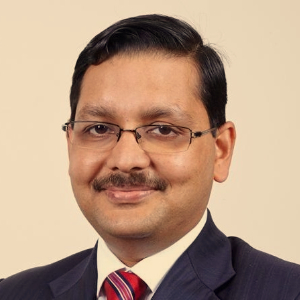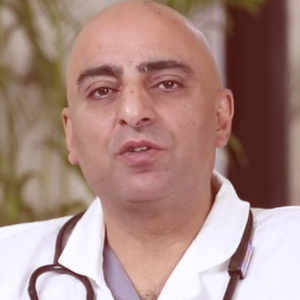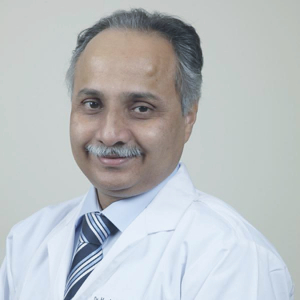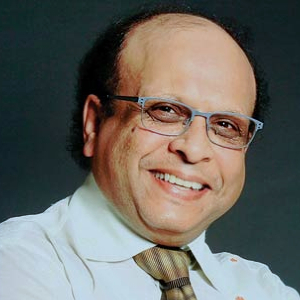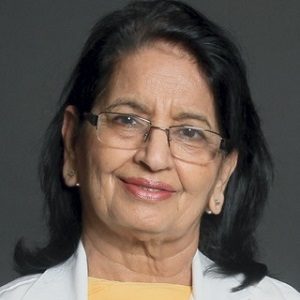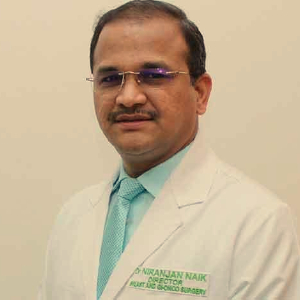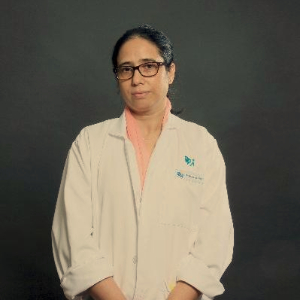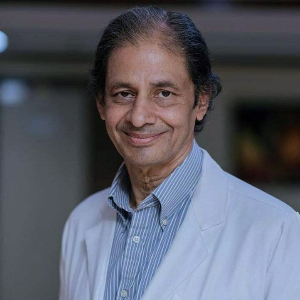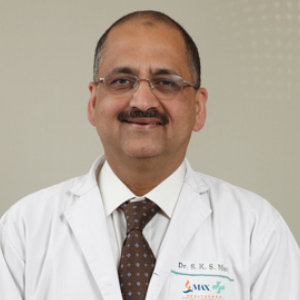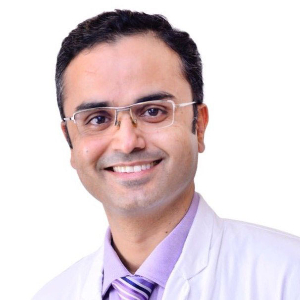Best Doctors in India for Osteosarcoma Treatment
- Surgical Oncologist, Gurugram, India
- Over 26 years’ experience
Profile Highlights:
- Dr. Vedant Kabra is a reputed Surgical Oncologist with specializations in the surgical treatment of breast, head and neck, thoracic, urological, and GI cancers.
- He has more than 20 years of experience in the field and has performed more than 12,000 cancer surgeries related to breast, GI, head, and neck, and Thoracic and GI cancers.
- Surgical Oncologist, New Delhi, India
- Over 26 years’ experience
Profile Highlights:
- Dr. Sameer Kaul is a surgical oncologist at Apollo Cancer Institute of Indraprastha Apollo Hospital, New Delhi
- He is the head of an independent Surgical Oncology Unit that comprises senior and junior consultants along with oncology nurses and other staff.
- Dr. Kaul performs all kinds of cancer surgeries related to the head and neck, breast, thoracic region, GI, genitourinary, soft tissues, and bones.
- He has 26+ years of experience in Surgical Oncology and has received his training from leading cancer centers of the world.
- Prior to joining Apollo, Dr. Sameer Kaul served in various other hospitals in India taking up different cancer cases and providing successful treatment.
- Dr. Sameer Kaul has extensive experience in Robotic surgeries and performs several of his procedures through Robotic techniques.
- He constantly works towards providing the best cancer care to the underprivileged section of society and therefore founded BCPBF – The Cancer Foundation, an NGO that works towards spreading cancer awareness.
- Dr. Kaul has been responsible for bringing various new and advanced techniques for cancer treatment to the country.
- He popularized Radio Frequency Ablation, Reconstruction for CA breast, and Post insertion in India
- Surgical Oncologist, New Delhi, India
- Over 30 years’ experience
Profile Highlights:
- Dr. Harit Chaturvedi is considered among the best surgical oncologists in India. He has over 3 decades of experience in Surgical Oncology and provides services for the surgical treatment of various types of cancers affecting the breast, head and neck, oral, abdomen, and GI regions.
- He performs surgeries for cancer patients for the removal of both breasts and lymph nodes, removal of part or entire thyroid gland, breast-conserving surgery, surgery for removal of part or entire small intestine, surgery for prostate cancer, etc.
- Orthopedic Surgeon, New Delhi, India
- Over 30 years’ experience
Profile Highlights:
- (Prof) Raju Vaishya is a well-known Orthopedic Surgeon in India with expertise in arthroscopic surgery (hip and knee) and joint replacement procedures.
- He has been in the field of joint replacement and arthroscopy for more than 30 years and is highly skilled at the management of chronic arthritis and performing joint replacement surgeries for hip, knee, elbow, shoulder, and finger joints.
- Dr. Raju Vaishya is among the first orthopedic surgeons to introduce shoulder arthroscopy in India and is the best surgeon for knee and hip arthroplasty in the country.
- His interest also lies in cartilage regeneration and restoration along with management and treatment of ligament injuries.
- Currently, Dr. Raju Vaishya is one of the lead orthopedic surgeons in Indraprastha Apollo Hospital and is also a Professor in the department. He is part of a highly efficient team of orthopedic doctors and surgeons in the hospital which makes it one of the best orthopedic centers in India.
- He runs a fellowship training program in orthopedic surgery under Indraprastha Apollo Hospital and has trained over 300 national and international orthopedic surgeons.
- Dr. Vaishya is known to have introduced the personalized knee surgery plan that uses a customized patient-centric approach for arthroplasty.
- Dr. Raju Vaishya regularly attends national and international scientific meetings and gets invited to speak and deliver talks at such conferences and seminars. He has chaired various orthopedic and arthroscopic sessions and delivered presentations.
- He has done a large number of research on the different aspects of Arthroscopy and joint replacement procedures. His work has been published in renowned peer-reviewed journals and holds the credit for over 175 publications in national and international journals and medical textbooks.
- Dr. Raju Vaishya’s name has been featured in the Limca Book of Records four times for his contributions towards orthopedics.
- An esteemed member of numerous medical associations and organizations, Dr. Vaishya is a well known name in orthopedic surgery of the world.
- Surgical Oncologist, New Delhi, India
- Over 40 years’ experience
Profile Highlights:
- Dr. Ramesh Sarin is one of the best surgical oncologists in India, with a mammoth experience of 49 years.
- Furthermore, the veteran oncologist focuses on managing breast cancer and related disorders like sentinel node biopsy.
- She is also interested in Phyaryngeal Cancer, Uterine Cancer, Bladder Cancer, Cervical Cancer, Liver Cancer, Fallopian Tube Cancer, Bone Cancer, Lung Cancer, Colon and Rectal Cancer, Lymphedema, and Brain Cancer.
- Surgical Oncologist, Gurugram, India
- Over 20 years’ experience
Profile Highlights:
- With 20+ years of experience, Dr. Niranjan Naik is one of the reputable names in the field of oncology and has performed more than 12000 onco-surgical operations so far, including many advanced and complex onco-surgical operations.
- Dr. Naik is generally considered one of the best Breast Cancer surgeons in India. He is also well versed in diagnostic and therapeutic endoscopic procedures.
- Surgical Oncologist, New Delhi, India
- Over 20 years’ experience
Profile Highlights:
- One of the finest oncologists in India, Dr. Ruqaya Ahmad Mir has been practicing surgical oncology for the past 20 years and is currently functioning as a Senior Consultant, Oncology at Indraprastha Apollo Hospital, New Delhi.
- Dr. Ruqaya Mir is known for her outstanding performance in some of the advanced surgical techniques which include Uterus and Ovary and Limb Conservation surgery and Cytoreductive surgery and Hyperthermic Intraperitoneal chemotherapy for advanced colorectal and recurrent ovarian malignancies.
- She is also a well trained Robotic Surgeon practicing implementation of minimal invasion in surgical oncology.
- Orthopedic Surgeon, Gurugram, India
- Over 30 years’ experience
Profile Highlights:
- Dr. Ashok Rajgopal is often considered the best Orthopedic Surgeon in India. He was awarded the Padma Shri by the President of India in 2014 for his impeccable service to Orthopedics in India.
- He is a highly knowledgeable and skilled orthopedic surgeon with more than 25,000 Total Knee Replacement surgeries to his name. He also holds the credit for more than 3200 joint replacement surgeries and over 9950 arthroscopic surgeries and 28,000 arthroplasties.
- He holds a unique stint of performing 28 Total Knee Replacement surgeries in less than 12 hours and has achieved several other milestones in his career.
- Orthopedic Surgeon, New Delhi, India
- Over 30 years’ experience
Profile Highlights:
- Dr. S K S Marya is a highly renowned and acclaimed Orthopedic Surgeon in India and has performed over 15,000 joint replacement surgeries till date.
- He is one of the most experienced orthopedic surgeons specializing in joint replacement surgery of upper and lower limb joints (both primary and revision) and Trauma management according to AO principles.
- His surgical career in numbers is quite high with 3500 simultaneous knee replacement surgeries and over 3000 hip replacement surgeries.
- Surgical Oncologist (Musculoskeletal), New Delhi, India
- Over 20 years’ experience
Profile Highlights:
- Dr. Akshay Tiwari is a well-known Musculoskeletal Surgical Oncologist who holds an extensive experience of close to two decades and finds interest in the treatment of musculoskeletal cancer patients.
- He is trained in surgery for cancers of the bone and soft tissues and has performed more than 1000 surgeries for bone and soft tissue tumors.
Best Hospitals in India for Osteosarcoma Treatment
Indraprastha Apollo Hospital, New Delhi
- City: New Delhi, India
Hospital Highlights:
- Indraprastha Apollo Hospital is a 700-bedded multispecialty hospital in the heart of the capital of India. It is a part of Apollo Hospital group, one of India’s most reputed healthcare chains. Indraprastha Apollo Hospital has been accredited by Joint Commission International, making it the first internationally accredited hospital in the country in 2005.
- There are 52 specialties in the hospital with one of the best cardiology centers in the country. The hospital is also equipped with State of the art infrastructure facilities with the largest Sleep Lab in Asia and the largest number of ICU bed facilities in India.
- The hospital also has one of the largest dialysis units in India along with a dedicated Bone Marrow Transplant unit.
- The latest and highly advanced technologies that are installed in the hospital include Da Vinci Robotic Surgery System, PET-MR, PET-CT, Cobalt-based HDR Brachytherapy, Brain Lab Navigation System, Tilting MRI, Portable CT scanner, 3 Tesla MRI, 128 Slice CT scanner, DSA Lab, Endosonography, Hyperbaric Chamber and Fibro scan.
Fortis Memorial Research Institute, Gurugram
- City: Gurugram, India
Hospital Highlights:
- Fortis Memorial Research Institute is a multi-super-specialty, quaternary care hospital with 1000 beds. The hospital comprises reputed clinicians, and international faculty and is also equipped with cutting-edge technology. The hospital is a part of Fortis Healthcare Limited, a reputed chain of private hospitals in India.
- It is a NABH-accredited hospital that is spread across 11 acres of land and has a capacity of 1000 beds. The hospital has 55 specialties and is one of the premier health care centers in the Asia Pacific region popularly known as “the Mecca of Healthcare”.
- The hospital has 260 diagnostic centers and is also equipped with the latest and advanced techniques that include 3 Telsa which is the world’s first Digital MRI technology. The hospital also has world-class Radiation Therapy techniques which have been developed by leading technology experts from Elekta and Brain Lab.
Apollo Hospital, Chennai
- City: Chennai, India
Hospital Highlights:
- Apollo Hospitals, Chennai, is one of the best hospitals for heart care in India. Over the years, Apollo has expanded all over India, as a healthcare chain.
- India’s first ‘Only Pancreas’ transplant was performed in Apollo Hospital. The hospital is known for successfully performing Asia’s first en-bloc combined heart and liver transplant, and over the years, it has attained a remarkable achievement in the global healthcare space. Around 3-4 organ transplants are performed in the hospital per day.
- Equipped with over 500 beds, this hospital in Chennai was established in 1983 and since then has been among the most preferred hospital for patients from all over the world.
- The hospital holds accreditation of the NABH and JCI and is the first hospital in India to be ISO 9001 and ISO 14001 certified. It is also the first South Indian Hospital to receive subsequent reaccreditation from the JCI USA 4 times.
Medanta-The Medicity, Gurgaon
- City: Gurugram, India
Hospital Highlights:
- One of India’s best and largest multi-specialty hospitals, Medanta was built with the aim to bring India to the highest standards of medical care. The hospital has been providing the best medical services to its patients, since its inception, with care, commitment, and compassion.
- Equipped with 1250 beds, the hospital was founded by Dr. Naresh Trehan in the year 2009 with an aim to provide the best medical care at affordable costs. The hospital is spread across 43 acres and includes 45 operation theatres and 350 beds dedicated solely to ICU. The hospital includes over 800 doctors, and more than 22 specialty departments and has a dedicated floor for individual specialty in order to offer the best services under one roof.
- The hospital is considered one of the premier institutes in India for Cardiac Care and includes staffs and members of high caliber. The hospital has 6 distinct centers of excellence.
Max Super Specialty Hospital, New Delhi
- City: New Delhi, India
Hospital Highlights:
- One of the well-regarded providers in India committed to the highest standards of clinical excellence and patient care, Max Super Specialty Hospital is a part of Max Healthcare, which is the second-largest healthcare chain in India. Regarded as one of the most well-regarded healthcare providers in the country, Max Super Specialty Hospital is committed to the highest standards of clinical excellence as well as patient care. The hospital is also equipped with the latest technology as well as cutting-edge research. The hospital is known to deliver and ensure the highest level of patient care.
- The hospital has more than 500 beds and offers treatment for over 35 specialties. The hospital also holds the credit of having installed the first Brain Suite in Asia. This is a highly advanced Neurosurgical machine that allows MRI to be taken while surgery is ongoing.
- Other advanced and latest technologies are also installed in the hospital such as the 1.5 Tesla MRI machine, 64 Slice CT Angiography, 4D ECHO, LINAC, and 3.5T MRI machine.
Artemis Hospital, Gurugram
- City: Gurugram, India
Hospital Highlights:
- One of the most well-known hospitals in the Delhi NCR, Artemis Hospital is the first hospital in Gurugram to get accredited by the Joint Commission International.
- With more than 40 specialties, the hospital has been designed to be one of the most technically advanced hospitals in the country, with the best medical and surgical health care. The hospital has eleven special and dedicated centers, for Heart, Cancer, Neurosciences, etc.
- The latest technologies in the hospital include Endovascular Hybrid Operating Suite and Flat panel Cath Labs for the cardiovascular department, 3 Tesla MRI, 16 slice PET CT, 64 Slice Cardiac CT Scan, HDR Brachytherapy, and highly advanced Image Guided Radiation Therapy techniques (LINAC) are installed in the hospital.
- The hospital has won several awards as well, since its inception.
BLK Max Super Specialty Hospital, New Delhi
- City: New Delhi, India
Hospital Highlights:
- Equipped with 650 beds, BLK Superspecialty Hospital is the largest stand-alone private sector hospital in Delhi.
- With over 1500 healthcare providers and 150 globally renowned super specialists, the hospital is one of Asia’s largest Bone Marrow Transplant Centres. The hospital is known for having some of the best cancer doctors in the country.
- The hospital is NABH and NABL accredited and was inaugurated by the first Prime Minister of India. Pt. Jawahar Lal Nehru.
Gleneagles Global Hospitals, Chennai
- City: Chennai, India
Hospital Highlights:
- Established in 1999, Gleneagles Global Hospital, Chennai, is one of the top healthcare facilities in Southern India. It is part of the Gleneagles Hospital Chain, which is the fourth largest healthcare chain in the country. The hospital specializes in multi-organ transplants of kidneys, liver, lungs, heart, etc.
- The hospital has an excellent infrastructure and state-of-the-art lab and equipment set-up. The hospital boasts cutting-edge technologies, a highly skilled team of doctors and surgeons, and trained support staff. Located in Perumbakam, Chennai, it is one of India’s premier health care destinations. The hospital has performed some of the most complex surgical and clinical procedures in India including multi-organ transplantations.
- The hospital’s lung transplantation program is one of the best in the country. The hospital is known for having performed India’s first single lung transplant and first minimal invasive lung transplant. It is also the only Indian hospital to be associated with King’s College Hospital, London, United Kingdom for liver transplantations.
Fortis Hospital, Mulund, Mumbai
- City: Mumbai, India
Hospital Highlights:
- Fortis Hospital in Mulund is a 315-bed multi-speciality tertiary care hospital with five JCI accreditations that offers a wide variety of diagnostic and therapeutic services. The Fortis Hospital in Mulund delivers patient-centred treatment with cutting-edge technology, highly skilled and experienced surgeons, and paramedical staff.
- This institution houses Maharashtra’s largest multi-organ transplant centre. It is also the first heart transplant centre in western India to conduct 100 or more consecutive heart transplants in under four years. It is the only hospital in the city to have multi-organ transplants and has handled the youngest patient for angioplasty. Fortis Hospital Mulund now boasts the first advanced surgical robot in central Mumbai.
- Cardiology and heart surgery, urology, nephrology, neurosciences, orthopaedics, digestive care, emergency and critical care, and maternity care are among the services provided by the hospital.
Kokilaben Dhirubhai Ambani Hospital, Mumbai
- City: Mumbai, India
Hospital Highlights:
- Kokilaben Dhirubhai Ambani Hospital, Named after the wife of Indian industrialist Dhirubhai Ambani, the founder of Reliance Industries, this is one of the top hospitals in Mumbai. This 750-bed multi-specialty hospital became operational in 2009. Known as one of India’s most advanced tertiary care facilities, the hospital is designed to raise India’s global standing as a healthcare hub, with an emphasis on excellence in clinical services.
- Kokilaben Dhirubhai Ambani Hospital uses Protocol and Care Pathway based treatment models to ensure the best outcomes for patients.
- The hospital represents a confluence of top-notch talent, cutting-edge technology, state-of-the-art infrastructure, and, most importantly commitment.
- The hospital also holds the accreditation of the NABH, NABL, CAP, and JCI.
- The hospital has been recognized as the No. 1 Multispecialty Hospital in Mumbai and the West Zone for the fifth year in a row in 2020 by The Week.
Osteosarcoma
Osteosarcoma, which is also termed as osteogenic sarcoma, is a type of bone cancer. It occurs when the cells that grow new bone form a cancerous tumor. If the disease is diagnosed early, then treatment procedures such as surgery or chemotherapy are successfully able to remove the tumor, before it can spread.
However, after the treatment is complete, lifelong monitoring is important to avoid any late side effects.
Anyone can have osteosarcoma, but it is generally the most common kind of bone cancer prevalent among children and teenagers. It occurs mostly among teenage boys.
Symptoms
Some of the signs and symptoms of the condition can include any of the following:
- Swelling or lumps around the bones or the ends of bones
- Pain at night
- Pain after exercise
- Bone or joint pain or soreness. This pain may come and go for months.
- Broken bones without a clear reason
- Limping
Although some limb pain and swelling are common among active and growing children, it is best to talk to your doctor if these signs do not go away in a couple of weeks, or if they worsen.
Causes & risk factors
What exactly causes osteosarcoma is not known. Doctors know this cancer forms when something goes wrong in one of the cells, that are responsible for making the new bone.
The condition generally begins when a healthy bone cell develops significant changes in its DNA. A cell’s DNA contains all the instructions telling it what to do. These changes tell the cell to start making new bone when it is not required. This results in a mass or a tumor of poorly formed bone cells that might invade and cause damage to healthy body tissue.
Some of these factors are known to increase the risk of osteosarcoma:
- Having undergone treatment previously with radiation therapy
- Other bone disorders, such as fibrous dysplasia or pagel’s disease
- Certain inherited or genetic conditions
Diagnosis
A medical history and a physical exam
Imaging Tests
Biopsy
Treatment
Treatment is going to depend on several factors, including the tumor’s location, how fast it’s growing, and whether it has spread. Your age and overall health is also considered.
Treatment is the most effective when you start it before the cancer has spread beyond your bones to any other tissues or organs. People are generally able to find tumors early since they cause pain, swelling or a limp. It is best to let your doctor know about warning signs like these so that you can start treatment early.
Most people who are having osteosarcoma require surgery along with chemotherapy. Some also choose to get radiation therapy.
Surgery
Limb-sparing surgery
Amputation
Rotationplasty
Chemotherapy
This treatment method involves using strong drugs to kill the cancer cells as well as to stop their further growth. They are usually administered into your vein through an IV.
Doctors treat most osteosarcomas with chemotherapy. The drugs help to shrink the tumor, which can help to make surgery easier, if it is required later. They are also able to get rid of small clusters of cancer cells that doctors might not see during medical scans.
Side effects generally include nausea and vomiting, diarrhea, along with a loss of appetite. Children generally have less severe side effects from this treatment as compared to adults, so they might receive higher doses of medication.
Radiation therapy
In this method, high-energy X-rays are used to kill cancer cells.
Radiation doesn’t work as effectively on osteosarcoma cells as compared to other cancers.
However, your doctor might choose to use a procedure known as external beam radiation therapy if they are unable to remove all of the cancer through other methods.
Complications
Complications of osteosarcoma as well as its treatments can lead to the following side effects:
- Cancer that spreads- Osteosarcoma can spread from where the area where it started to other areas of the body, which makes treatment and recovery even more difficult. Osteosarcoma that spreads is mostly known to spread to the lungs and other bones.
- Adapting to limb amputation- Surgery that removes the tumor and spares the limb is used whenever it is possible. However, it might be necessary to remove part of the affected limb to remove the cancer. In such cases, an artificial limb or prosthesis will be required but it requires time, practice and patience.
- Long-term treatment side effects- The aggressive chemotherapy which is required to control osteosarcoma can lead to substantial side effects, in the short term as well as in the long term. Your health care team can help you manage the side effects that occur during the treatment and provide you with a list of side effects to watch for in the years following your treatment.

